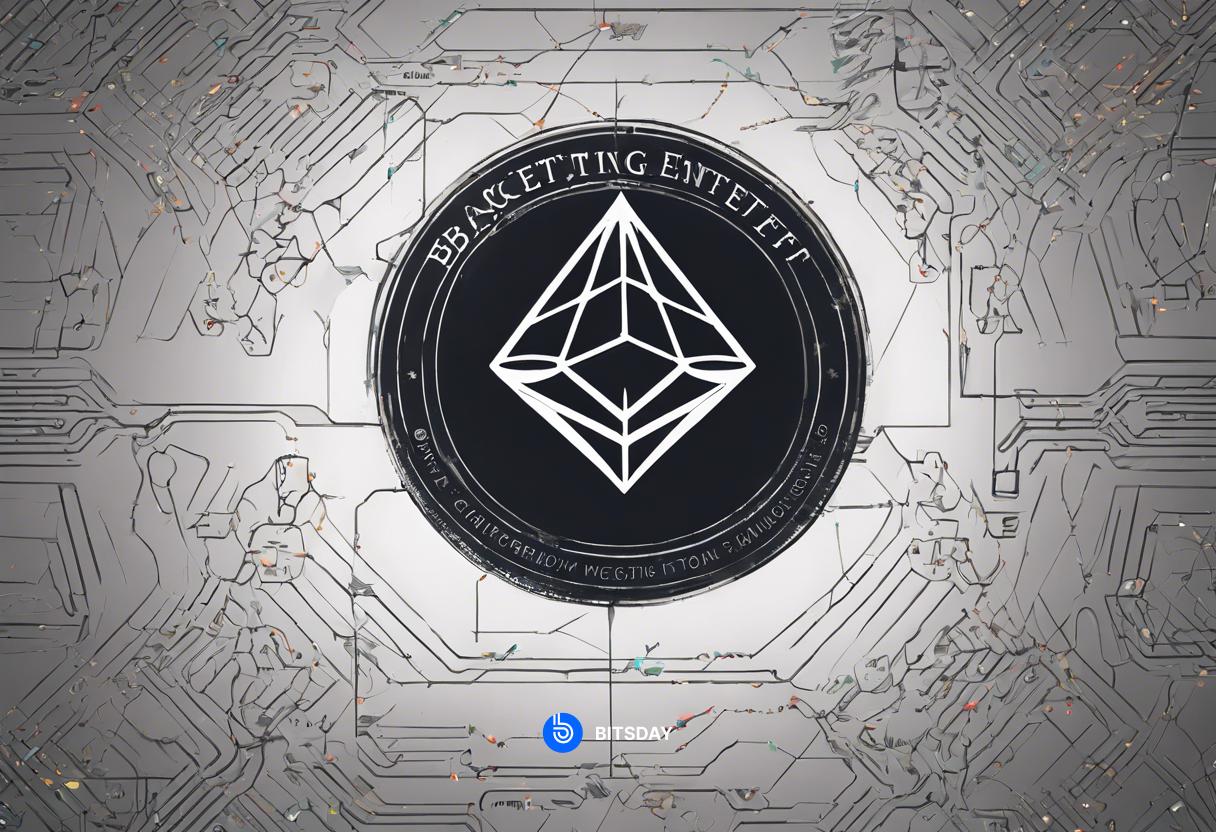Navigating Complexity: BlackRock's Endeavor to Introduce an Ethereum ETF After Bitcoin Success Raises Marketing Challenges

Larry Fink has been actively promoting the idea of introducing an Exchange-Traded Fund (ETF) based on Ethereum, following the earlier launch of BlackRock's Bitcoin ETF. The CEO of this asset management giant, Larry Fink, has taken the initiative in marketing a second ETF, specifically centered around Ethereum's underlying cryptocurrency. Fink has underscored the transformative potential embedded in Ethereum's blockchain technology.
As the interest in Bitcoin's ETF continues to surge, the financial sector is eager to leverage this momentum by advocating for additional cryptocurrency ETFs. This strategy involves a substantial marketing push, with numerous sales representatives engaging in meetings to present these novel products, elucidate their functionalities, and assess potential interest from buyers.
Nevertheless, a notable challenge emerges when contemplating the introduction of an Ethereum (ETH) ETF. Investors who recently acquired a Bitcoin ETF may already feel content with their portfolio diversification. The crucial question arises: why would they need another instrument for diversifying their cryptocurrency holdings?
Sui Chung, the CEO of CF Benchmarks, an index provider affiliated with the BlackRock iShares Bitcoin ETF, has carefully considered this dilemma. Chung recently released a comprehensive guide outlining the benefits of Bitcoin-backed securities for investors. While the guide delves into the technological aspects of Bitcoin and its potential applications in the realm of finance, Chung accentuates the primary role of a Bitcoin ETF in diversifying investment portfolios and enhancing overall risk-adjusted returns.
Chung emphasizes the substantial impact of integrating Bitcoin into a portfolio containing traditional assets like stocks, bonds, and cash. According to Chung, Bitcoin serves as a powerful diversification tool, effectively doubling the Sharpe ratio even with a modest allocation.
The challenge lies in effectively marketing an Ethereum ETF to traditional finance (TradFi) investors who have already diversified with Bitcoin. Chung underscores the necessity for financial institutions such as BlackRock, Franklin Templeton, and Fidelity to address this distinctive scenario. With investors already having allocated a portion of their portfolios to Bitcoin, the introduction of an ETH ETF necessitates a strategic and nuanced approach.
Larry Fink, the CEO of BlackRock, has delved into Ethereum's intricate landscape by discussing tokenization, a concept gaining traction among traditional financial firms. Chung proposes that any educational initiatives should encompass smart contracts, decentralized finance (DeFi), blockchain staking, and the Securities and Exchange Commission's (SEC) stance on these matters.
While Bitcoin and Ethereum exhibit differences, a noteworthy contrast is Ethereum's shift from the energy-intensive proof-of-work security system to a more environmentally sustainable validator model. Chung dismisses the idea of marketing Ethereum ETFs based on Environmental, Social, and Governance (ESG) considerations, given the controversies surrounding ESG investing in the current landscape.
BlackRock has chosen not to provide comments on this matter.
Read More: Bitcoin's $35K Dip Amid TradFi Highs: Analysts Uphold Optimism

Trending



Press Releases

Deep Dives







